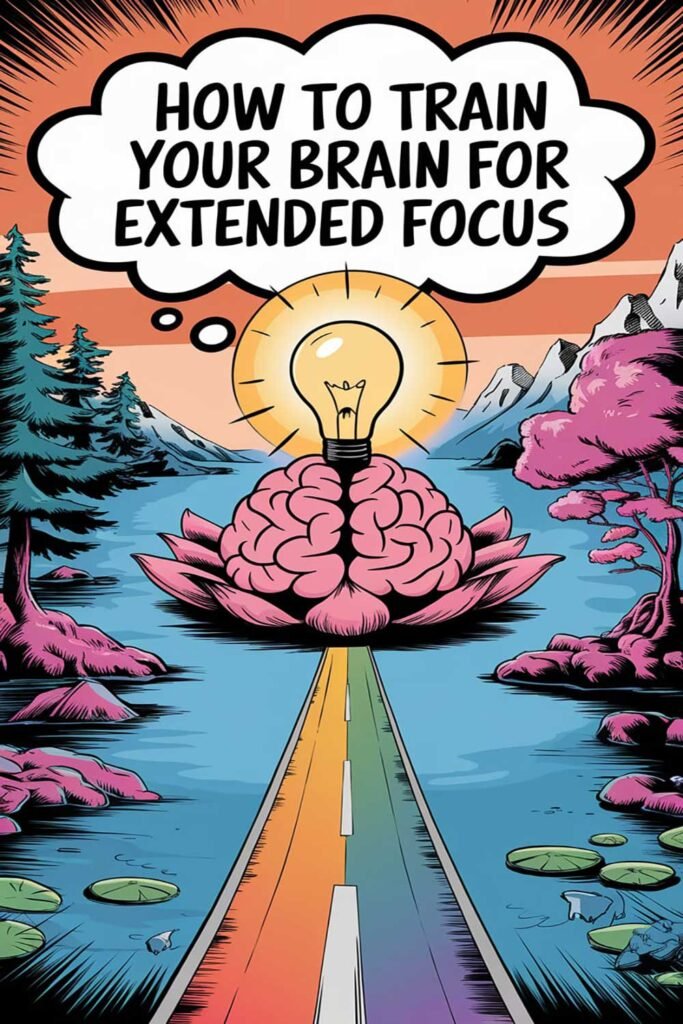
Beginner Budgeting Tips for Millennials: Your Uncomplicated Guide to Financial Freedom
Let’s be real, Millennials. We’ve navigated a unique economic landscape. From student loan debt that feels like a permanent fixture to soaring housing costs and the ever-present pressure to keep up with digital trends, building financial stability can feel like an uphill battle. We’re often dubbed the “broke generation,” but the truth is, many of us are simply trying to find our footing in a complex financial world that wasn’t exactly taught in school.

The idea of “budgeting” itself can conjure up images of spreadsheets, deprivation, and endless restriction. For a long time, that’s how I saw it. My money seemed to evaporate faster than a free sample at Costco, and despite earning a decent income, I always felt stressed about my finances. I’d pay my bills, maybe stash a tiny bit into savings, and then wonder where the rest went. The thought of creating a budget felt overwhelming, complicated, and frankly, a bit boring.
But here’s the game-changer: budgeting isn’t about restriction; it’s about empowerment. It’s about giving every dollar a job, aligning your spending with your values, and creating a clear roadmap to your financial goals, whether that’s crushing student debt, saving for a down payment, or finally taking that dream trip. It’s the foundation of financial independence.
This comprehensive guide is designed specifically for you, the Millennial who’s ready to ditch the financial anxiety and take control. We’re going to break down budgeting into simple, actionable steps, using language that makes sense (no confusing jargon here!), and equip you with the tools and mindset shifts you need to build a strong financial future. Forget what you think you know about budgeting – let’s learn how to make your money work for you.
Why Budgeting is Your Ultimate Millennial Superpower
In a world full of economic challenges unique to our generation, a budget isn’t just a good idea; it’s an essential tool for thriving:
- Conquers Debt: A budget provides the clarity needed to aggressively tackle student loans, credit card debt, and other financial burdens that often weigh us down.
- Builds Wealth: By intentionally directing your money, you can consistently save and invest, building real wealth over time.
- Reduces Stress: Knowing exactly where your money is going brings immense peace of mind and reduces that nagging financial anxiety.
- Achieves Goals Faster: Whether it’s a house, a career change, or travel, a budget turns dreams into actionable plans.
- Fights Lifestyle Creep: As incomes potentially rise, a budget helps you avoid mindlessly increasing your spending, keeping you on track for your goals.
- Promotes Intentional Living: Every dollar has a purpose, meaning you’re spending on what truly matters to you, not just what’s convenient or trendy.
Budgeting is foundational for overall personal finance knowledge. For a broader overview, consider checking out Money 101: What Every Millennial Should Know About Personal Finance.
Your Step-by-Step Beginner’s Guide to Budgeting
Ready to transform your financial life? Let’s get started.
Step 1: Know Your Numbers – Income & Expenses
This is the non-negotiable starting point. You need a clear picture of what’s coming in and what’s going out.
- Calculate Your Net Income: This is your take-home pay after taxes, deductions, and 401(k) contributions. If you have multiple income sources (side hustles, freelancing), add them all up. Be realistic – if income fluctuates, use a conservative average.
- Track Every Penny You Spend: This might feel tedious, but it’s crucial. For one month, use a budgeting app (Mint, YNAB, EveryDollar), a spreadsheet, or even a simple notebook to record every single expense. This includes your morning coffee, that impulse online purchase, and subscription services you forgot about.
- Pro Tip: Link your bank accounts and credit cards to a budgeting app for automatic tracking if manual entry isn’t your thing.
- Categorize Your Spending: Group similar expenses. Common categories include: Housing (rent/mortgage), Utilities (electricity, internet), Transportation (gas, public transit), Food (groceries, dining out), Debt Payments (student loans, credit cards), Insurance, Personal Care, Entertainment, Subscriptions, Savings.
Why this step matters: You can’t fix a leak until you know where it is. This step provides the raw data you need.
Real-Life Example: Sarah, a 28-year-old marketing coordinator, felt stuck. She earned $50k/year but always felt broke. For a month, she diligently tracked her spending. She discovered she was spending $400/month on dining out and coffee, and another $150 on streaming services she barely used. This eye-opening data empowered her to make conscious choices in Step 3. This process is essentially the essence of The Beginner’s Guide to Managing Your Money Like a Pro.
Step 2: Choose Your Budgeting Method (Find Your Fit)
There isn’t a one-size-fits-all budget. The best budget is the one you’ll actually stick to. Explore different approaches to see what resonates with you.
- The 50/30/20 Rule:
- 50% Needs: Housing, utilities, transportation, groceries.
- 30% Wants: Dining out, entertainment, hobbies, new clothes.
- 20% Savings & Debt Repayment: Emergency fund, retirement, debt principal payments.
- Why it’s great for beginners: Simple, flexible, and provides clear guidelines.
- Zero-Based Budgeting:
- Every dollar of your income is assigned a “job” (expense, savings, debt payment) until your income minus your outflow equals zero. It’s like giving every dollar a name.
- Why it’s great: Offers maximum control and intentionality.
- The Envelope System:
- You withdraw cash for variable categories (like groceries, entertainment) and put it into physical envelopes. Once an envelope is empty, you’re done spending in that category for the month.
- Why it’s great: Visually limits spending and makes overspending impossible in cash categories.
- Budgeting Apps/Software:
- Mint, YNAB, EveryDollar, Personal Capital. These tools automate tracking, categorize spending, and provide visual reports.
- Why it’s great: Convenient, provides real-time data, and can make budgeting feel less like a chore.
Why this step matters: Finding a method that aligns with your personality and lifestyle makes budgeting sustainable, not just a temporary fix. You can dive deeper into various strategies with 7 Budgeting Methods to Find the One That Works For You.
Real-Life Example: Michael, a 30-year-old teacher, tried the 50/30/20 rule first because of its simplicity. He quickly saw how much of his income was going to “wants.” After a few months, he transitioned to a zero-based budget using an app because he wanted even more granular control over his money to accelerate student loan payments. “The 50/30/20 got me started, but the zero-based budgeting helped me crush my debt goals faster than I thought possible,” he shared.
Step 3: Create Your Budget & Allocate Funds (Give Every Dollar a Job)
Now, it’s time to build your actual budget plan for the upcoming month.
- Start with Income: Input your total net monthly income.
- Fill in Fixed Expenses First: Rent/mortgage, loan payments, insurance premiums, fixed subscriptions. These are usually non-negotiable.
- Allocate to Savings & Debt: Before you even think about “fun money,” allocate money to your savings goals (emergency fund, down payment, retirement) and extra debt payments. Treat these as non-negotiable bills.
- Budget for Variable Expenses: Groceries, transportation, dining out, entertainment. Use your tracking data from Step 1 as a guide, but now assign how much you want to spend in each category. This is where you make conscious cuts if needed.
- Aim for Zero (or a Surplus for Saving): The goal is for your Income – Expenses – Savings – Debt Payments = $0. Every dollar has a purpose. If you have money left over, assign it a job (more savings, more debt repayment!). If you’re in the negative, go back to your variable expenses and trim until you hit zero.
Why this step matters: This is where you transform passive spending into active financial decision-making. You’re consciously prioritizing.
Real-Life Example: After calculating her $400 in coffee/dining out and $150 in streaming, Sarah (from Step 1) decided to cut her dining out to $200 and cancel two streaming services, freeing up $250. She immediately allocated $150 of that to her emergency fund and $100 to her highest-interest credit card debt. “It felt like I found money I didn’t even know I had,” she exclaimed. “Seeing that money go to my goals instead of just… disappearing… was incredibly motivating.”
Step 4: Track & Adjust (The Ongoing Journey)
Budgeting isn’t a one-and-done event. It’s an ongoing conversation with your money.
- Track Regularly: Throughout the month, continually log your spending and compare it to your budget. Are you on track? Are you overspending in a category?
- Be Flexible & Adjust: Life happens. If an unexpected expense pops up (e.g., car repair), don’t abandon the budget. Reallocate funds from a less critical category, or adjust your spending for the rest of the month.
- Review Monthly: At the end of each month, sit down and review your budget.
- What went well?
- Where did you overspend/underspend, and why?
- Are your income and expenses still accurate?
- Are your financial goals still the same?
- Use these insights to create your budget for the next month.
Why this step matters: Consistency and adaptability are key. This iterative process allows your budget to evolve with your life, making it sustainable long-term.
Real-Life Example: After a few months, Michael (from Step 2) noticed he was consistently underspending on groceries but overspending slightly on spontaneous outings with friends. He adjusted his next month’s budget, shifting money from groceries to his “social” fund. “My budget became a tool that reflected my life, not a cage,” he explained. “It meant I could still enjoy my friends without guilt, because I had budgeted for it.”
The Mindset Shift: From Overwhelm to Empowerment
Budgeting, especially for Millennials facing unique financial pressures, is about more than just numbers. It’s about empowering yourself. It’s about knowing where you stand, making conscious choices, and building a secure financial future on your own terms. It requires discipline, but the freedom and peace of mind it brings are priceless.
Embrace the process. Start small. Be patient with yourself. And remember, every single dollar you intentionally manage is a step closer to the financial freedom you deserve.
Picture This…
Imagine opening your banking app not with dread, but with a quiet sense of control. You know exactly how much money is available for each of your spending categories, how much is flowing into your savings, and how steadily your debt is shrinking. The anxiety of “where did my money go?” is replaced by the satisfying clarity of “my money is working for me.” You can confidently say “yes” to experiences that align with your values, because you’ve budgeted for them, and “no” to impulse buys without guilt. This isn’t just about managing money; it’s about building a foundation for a life of greater freedom, reduced stress, and the power to truly shape your own financial destiny.
20 Powerful Quotes on Budgeting & Financial Empowerment
- “A budget is telling your money where to go instead of wondering where it went.” – Dave Ramsey
- “The habit of saving is itself an education; it fosters every virtue, teaches self-denial, cultivates foresight, and so sharpens every faculty.” – T.T. Munger
- “Do not save what is left after spending, but spend what is left after saving.” – Warren Buffett
- “Every dollar you spend is a vote for the kind of world you want to live in.” – Anna Lappe
- “Financial freedom is available to everyone, but only to those who learn about it and work for it.” – Robert Kiyosaki
- “Money, like emotions, is something you must control to keep your life on the right track.” – Natasha Munson
- “Frugality is founded on the most generous of instincts, and is the happy medium between avarice and profusion.” – Charles Caleb Colton
- “It’s not how much money you make, but how much money you keep, how hard it works for you, and how many generations you keep it for.” – Robert Kiyosaki
- “The goal isn’t to make a lot of money; the goal is to live your life on your own terms.” – Chris Reining
- “An investment in knowledge pays the best interest.” – Benjamin Franklin
- “Budgeting is not about limiting yourself, it’s about making the most of what you have.” – Unknown
- “You must gain control over your money or the lack of it will forever control you.” – Dave Ramsey
- “The best way to save money is to get out of your head that you have to spend it.” – Catherine Zeta-Jones
- “Financial peace isn’t the acquisition of stuff. It’s learning to live on less than you make, so you can save money and invest money.” – Dave Ramsey
- “Money is only a tool. It will take you wherever you wish, but it will not replace you as the driver.” – Ayn Rand
- “Empty pockets never held anyone back. Only empty heads and empty hearts can do that.” – Norman Vincent Peale
- “The best thing you can do for yourself is to understand your money.” – Suze Orman
- “Being frugal is not about cutting out all the things you love. It is about cutting out the things you don’t love so you can afford the things you do.” – Melissa Blevins
- “Wealth is not about having a lot of money; it’s about having a lot of options.” – Chris Rock
- “If you don’t know where you are going, any road will get you there.” – Lewis Carroll (Applies to your money!)
Disclaimer
Please note: This article is intended for general informational and educational purposes only and is based on common budgeting principles and personal experiences. Individual financial situations, income levels, expenses, and goals vary significantly among Millennials. This content is not a substitute for personalized financial advice. Before making any significant financial decisions, it is strongly recommended to consult with a qualified financial advisor who can provide guidance tailored to your specific circumstances.
Share This Article!
Are you ready to transform your financial future and take control of your money? If these beginner budgeting tips for Millennials have inspired you, please share this article with friends, family, or on your social media! Let’s empower our generation to build lasting financial freedom.






